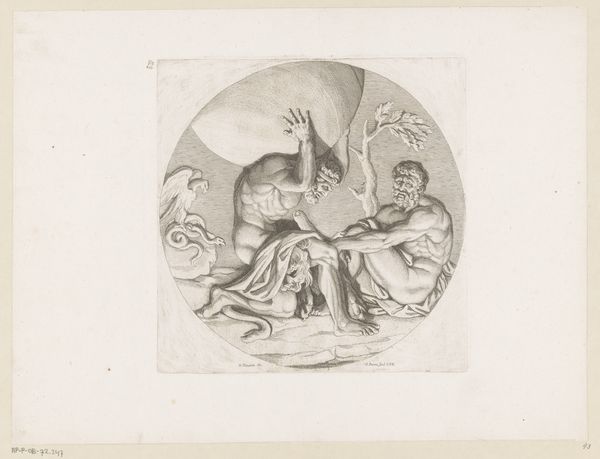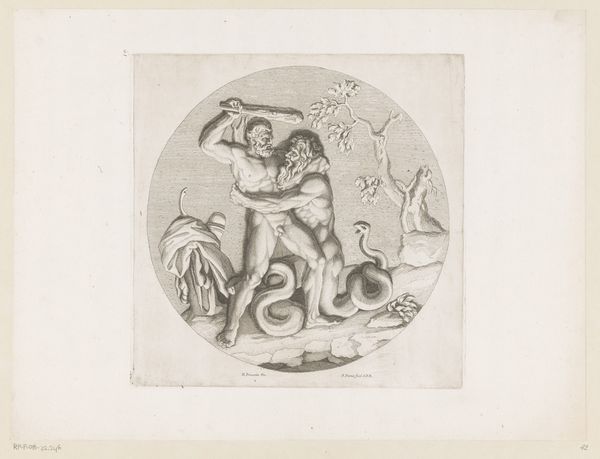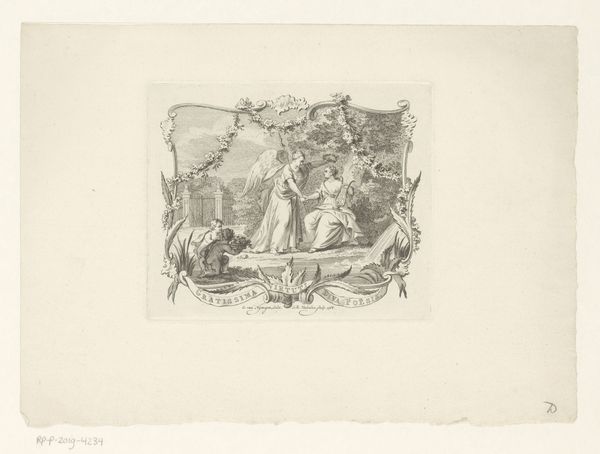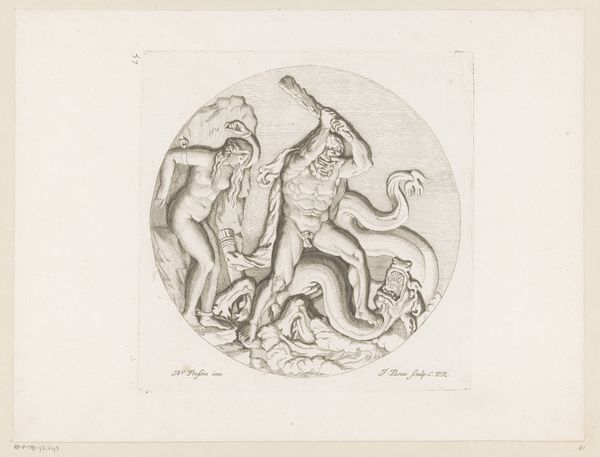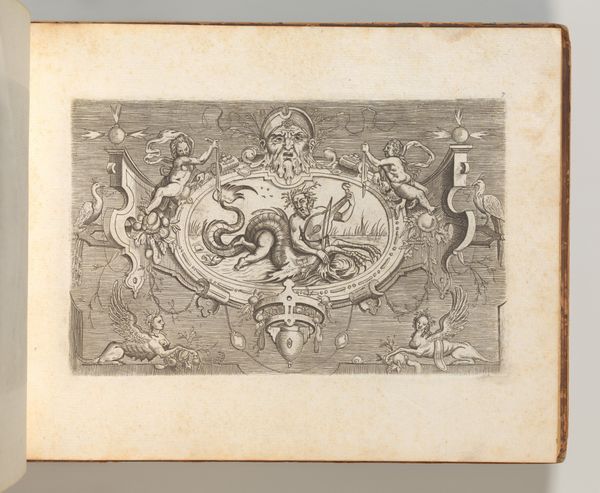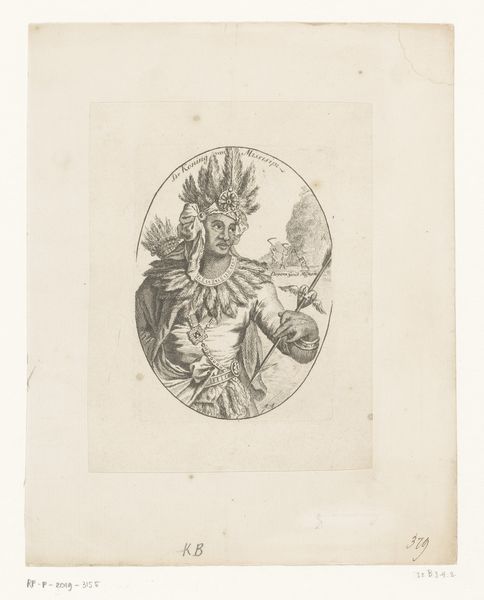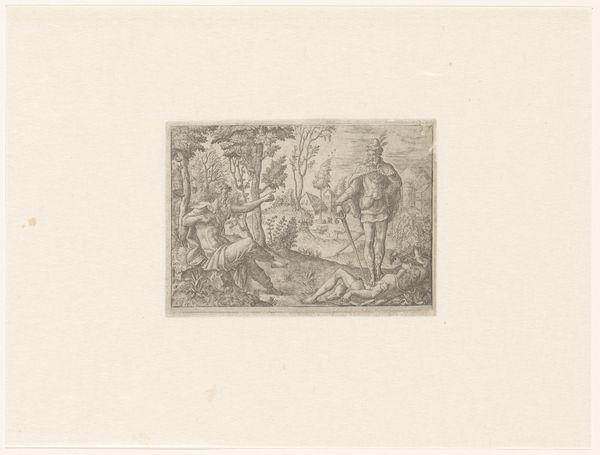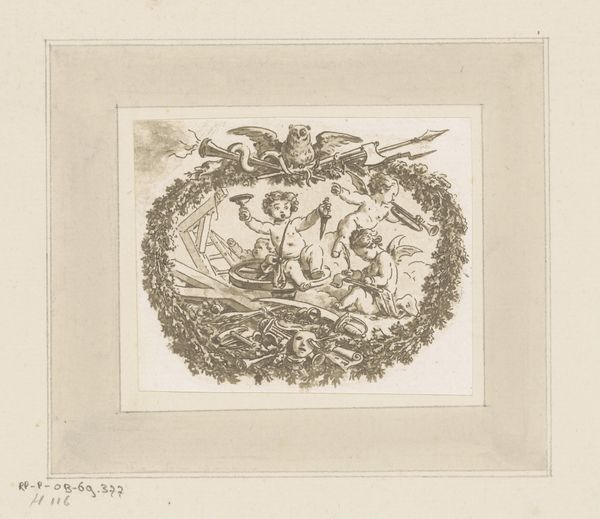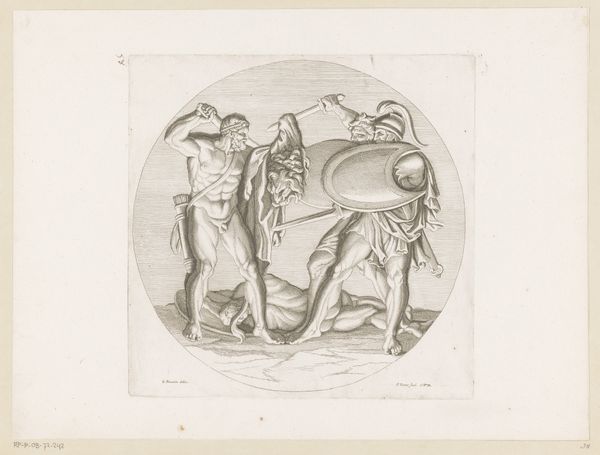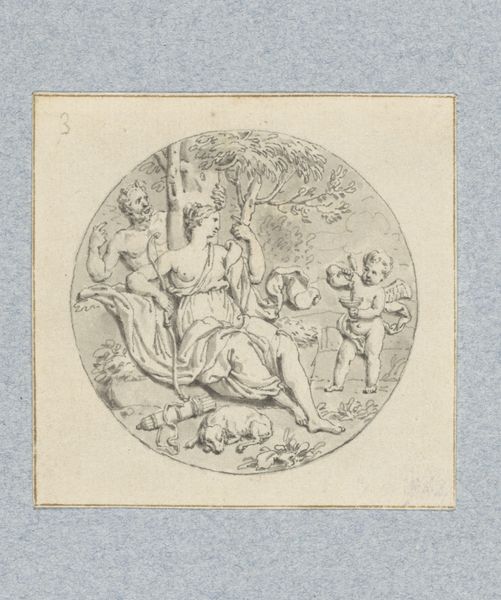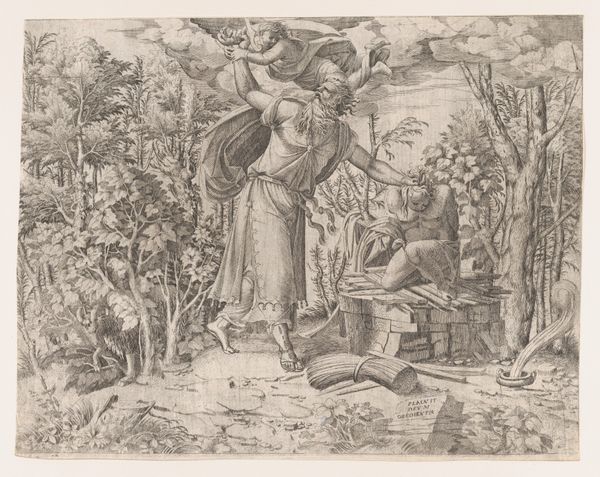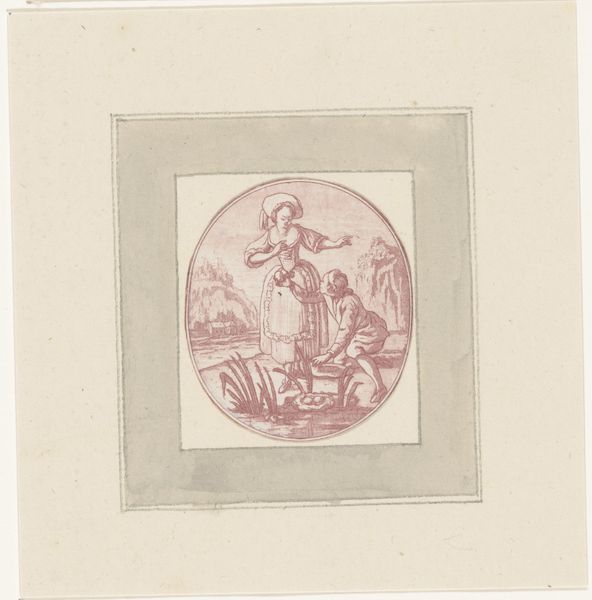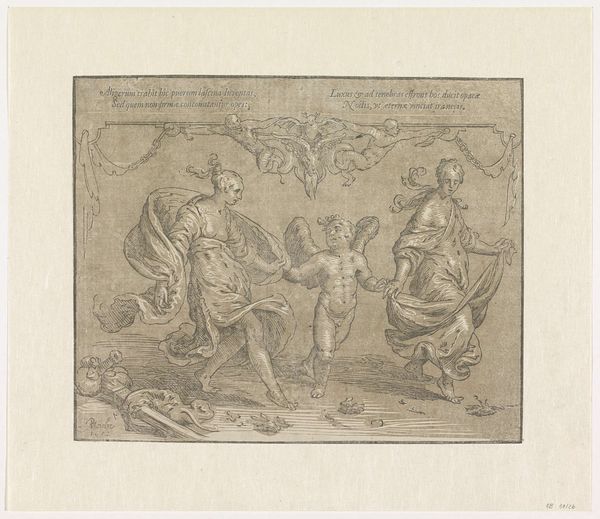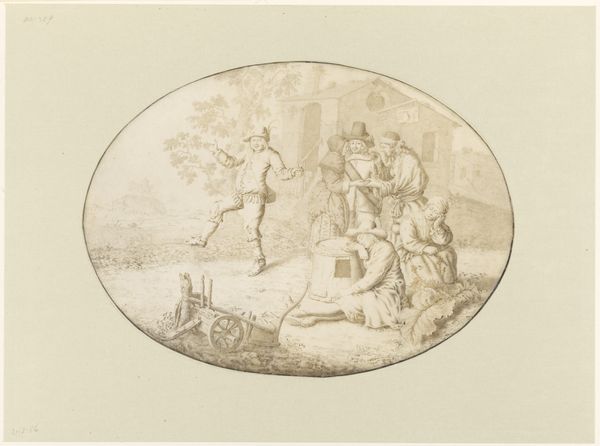
print, engraving
#
allegory
#
baroque
# print
#
figuration
#
history-painting
#
engraving
Dimensions: height 278 mm, width 278 mm
Copyright: Rijks Museum: Open Domain
Jean Pesne created this engraving, Juno bij slapende Hebe, sometime before his death in 1700. Here, Juno reclines, nursing the sleeping Hebe, with a watchful Minerva and a pair of peacocks at her side. Consider the peacock, Juno’s emblematic bird. In antiquity, it symbolized vanity and ostentation, yet it also represented immortality due to the myth that its flesh doesn't decay. We see this duality echoed through history; In early Christian art, the peacock appears as a symbol of resurrection, its vibrant plumage alluding to the glories of paradise. Yet, its association with Juno, a goddess of jealousy and power, hints at a more complex, even darker symbolism. The peacock becomes a vessel through which cultures negotiate themes of vanity, immortality, and power, its image imbued with layers of collective memory. It demonstrates how symbols are never fixed; they transform and are continually re-evaluated, mirroring humanity’s own evolving self-perception.
Comments
No comments
Be the first to comment and join the conversation on the ultimate creative platform.
